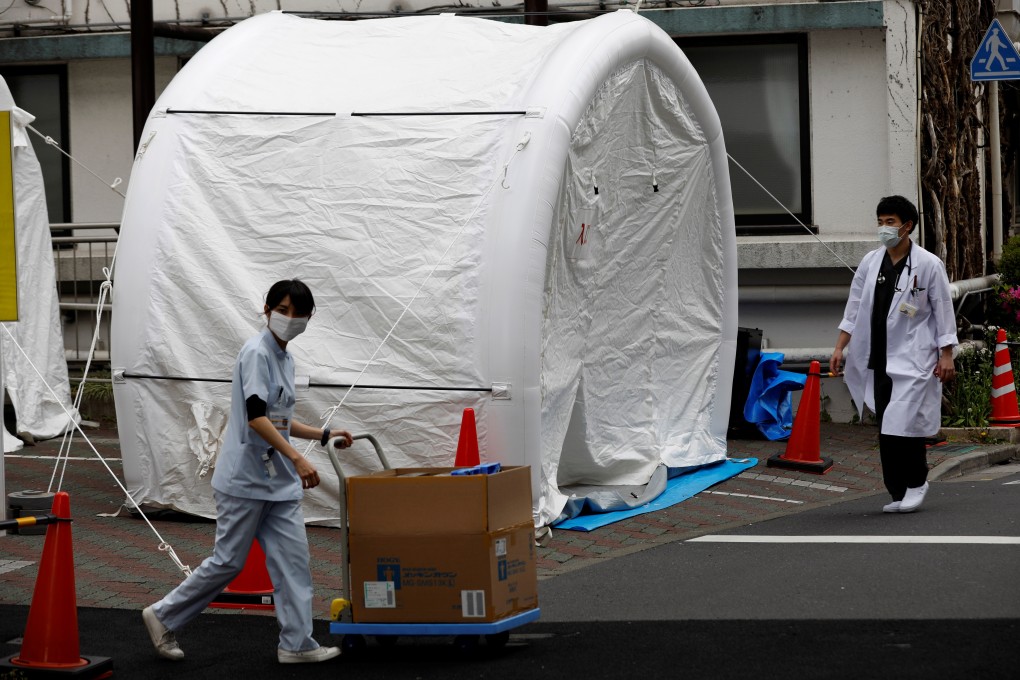Coronavirus: Japanese hospitals feel the strain of new wave of infections
- Outbreak has highlighted underlying weaknesses in medical care in Japan, which has long been praised for its high-quality insurance system and reasonable costs
- Apart from a general unwillingness to embrace social distancing, experts fault government incompetence and a widespread shortage of the protective gear

In one recent case, an ambulance carrying a man with a fever and difficulty breathing was rejected by 80 hospitals and forced to search for hours for a hospital in downtown Tokyo that would treat him. Another feverish man finally reached a hospital after paramedics unsuccessfully contacted 40 clinics.
The Japanese Association for Acute Medicine and the Japanese Society for Emergency Medicine say many hospital emergency rooms are refusing to treat people including those suffering strokes, heart attacks and external injuries.
Japan initially seemed to have controlled the outbreak by going after clusters of infections in specific places, usually enclosed spaces such as clubs, gyms and meeting venues. But the spread of virus outpaced this approach and most new cases are untraceable.
The outbreak has highlighted underlying weaknesses in medical care in Japan, which has long been praised for its high-quality insurance system and reasonable costs. Apart from a general unwillingness to embrace social distancing, experts fault government incompetence and a widespread shortage of the protective gear and equipment medical workers need to do their jobs.
Japan lacks enough hospital beds, medical workers or equipment. Forcing hospitalisation of anyone with the virus, even those with mild symptoms, has left hospitals overcrowded and understaffed.
The “collapse of emergency medicine” has already happened, a precursor to the overall collapse of medicine, the Japanese Association for Acute Medicine and the Japanese Society for Emergency Medicine said in a joint statement. By turning away patients, hospitals are putting an excessive burden on the limited number of advanced and critical emergency centres, the groups said.